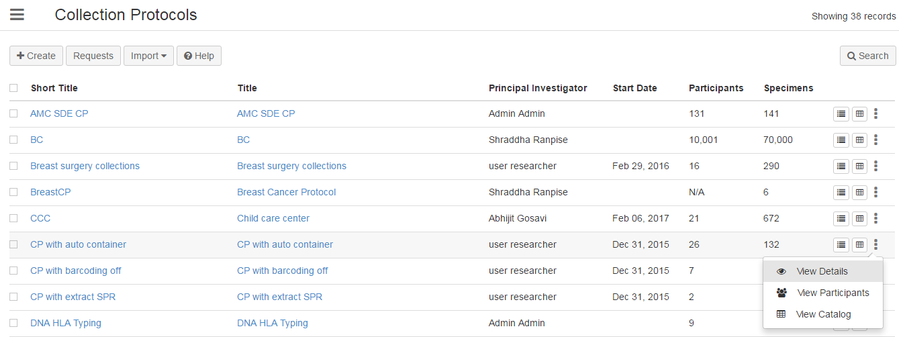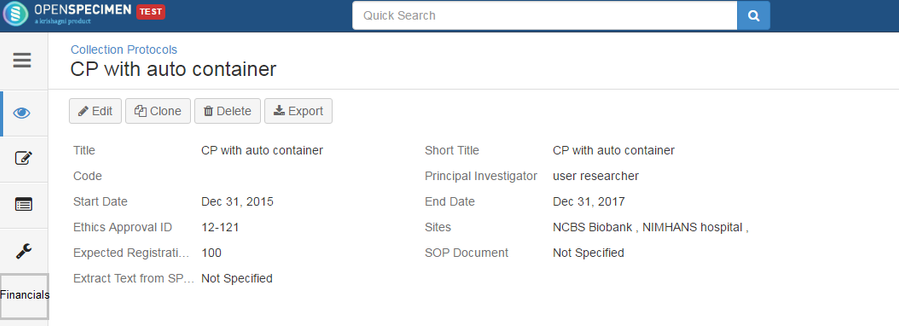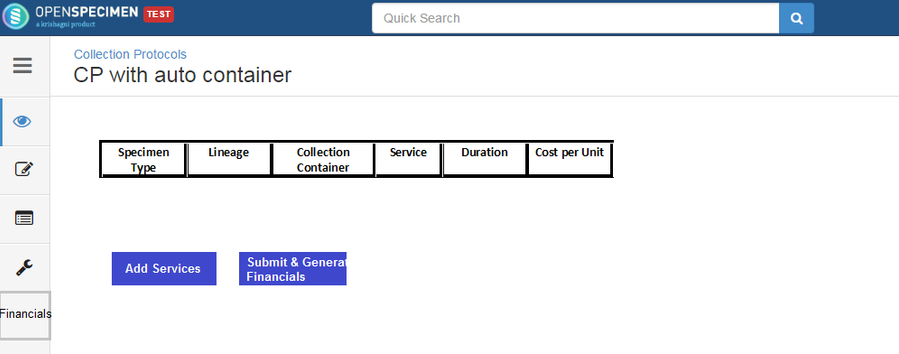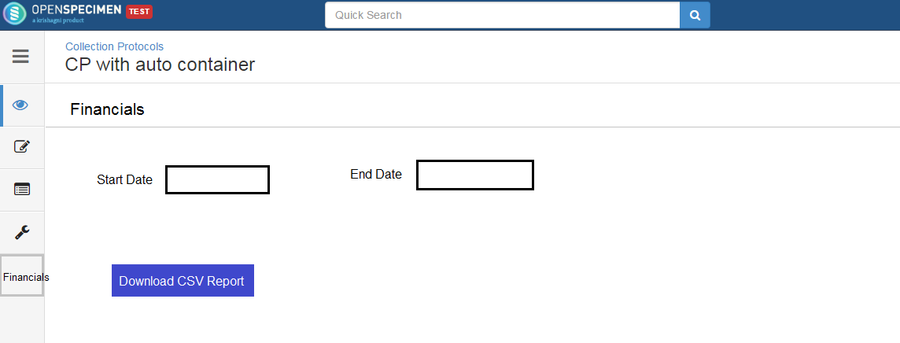Leave a comment at the end of this page or email contact@krishagni.com
Financials
The financials module is designed to efficiently recover the biobank and lab costs. It has multiple features including tracking the costs of specimen collection and storage and generating reports. The reports can be sent to finance division or applications like iLab to generate invoices. Multiple rates can be established at a collection protocol level depending on the type of samples being collected, processed, or stored.
Defining rates
In this step, users will be able to add costs associated at each CP.
- The costs of collection/processing/storage need to be defined at collection level. Click on 'Collection Protocols' and select CP of interest to view details.
Once in the CP detail view page click on 'Financials' to start setting up cost for each service.
Click on 'Add Services' and fill out the information according to the table below. User should be able to add multiple services to the table by clicking on 'Add Services'.
Column
Datatype
Description
Specimen Type
String
Type of sample (e.g. blood, serum, tissue,etc)
Lineage
String
New, Derivative, Aliquot
Collection Container
String
Serum separator tube, Vacutainer Tube, Cryovials, Straw, etc
Service
String
Collection or Storage
Duration
String
Units of duration i.e. is the price per day, week, month, or year
Note: This might not needed and the price could be always per month to make the feature simple.
Cost Per Unit
Integer
Cost of service per number of sample
- Notes:
- We can also consider given default rates at the system level which can then be customized at each CP level.
- We can also consider given a button to "Copy for a different CP" to copy the rates in one go.
Generating Reports
- Once all the rates have been finalized, click on 'Generate Report'
- Provide the duration for the report and click on 'Download'.
Sample CSV File:
Column Name | Datatype | Description |
|---|---|---|
CP Short Title | String |
|
Date | Date | Date of report generation |
Specimen Type | String |
|
Lineage | String |
|
Collection Container | String |
|
Number of samples | Integer |
|
| Type of service | String | Collection or storage |
Unit Price | Integer |
|
Total Cost | Integer |
|
Calculating total cost
This section explains how the total cost is calculated based on type of service.
Collection: This indicates the rate defined for specimen collection. If the specimen "collection date" falls between the two dates, then the specimen is counted as part of this period. In case of derivatives and aliquots, the specimen creation date will be considered. E.g. if 100 specimens were collected/created during the last month and rate per collection is 10$ per specimen, then the total cost is 1000$.
Questions to adopters: Is collection as a service needed? If yes, do you charge for primary specimen collection or even at aliquot level?
Storage: If the specimen is stored for 6 months and the rate is 10$ per month, then the total price for that specimen is 60$.
Questions for adopters: Do you charge per aliquot storage?
Ad-hoc services: Should there be an option to enter additional services (i.e. apart from collection, storage)? E.g. Do you charge based on processing of samples or running any test? Like isolating DNA, RNA, sequencing, or creating aliquots, etc.
Leave a comment at the end of this page or email contact@krishagni.com



